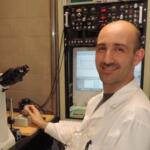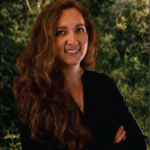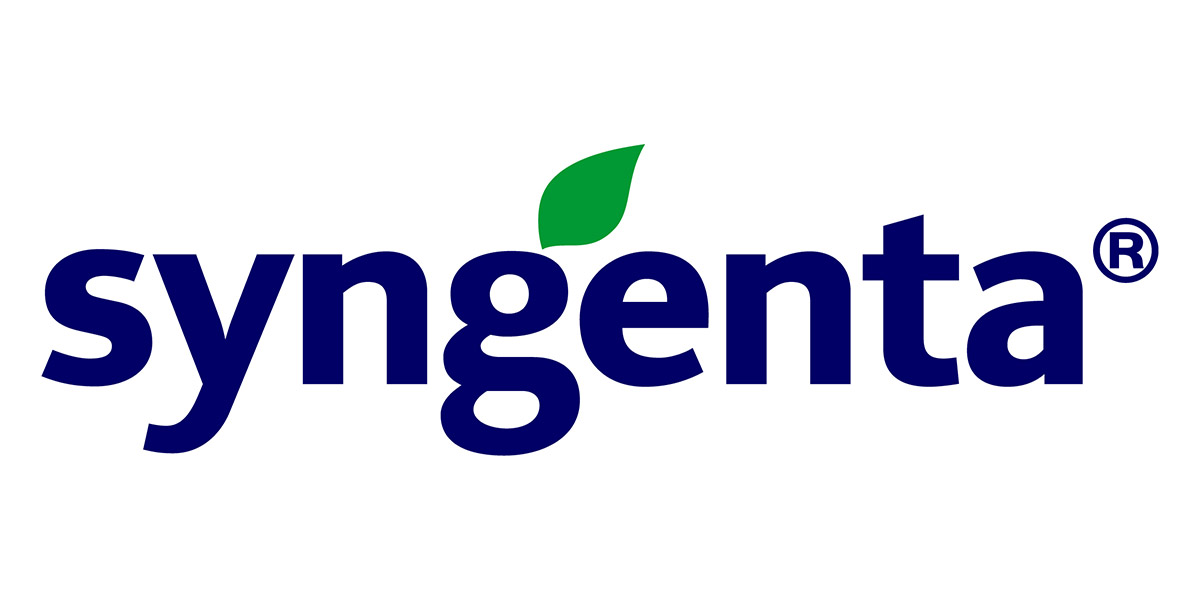Are you an early career scientist making strides in agrochemicals or biotechnology-related research? Interested in presenting your work at the ACS Fall Meeting in Washington? The ACS Division of Agrochemicals invites you to apply for our New Investigator Awards! This program celebrates innovative research and outstanding contributions to the field, helping you advance your career and network with leaders in agrochemistry.
Deadline to Apply
March 31, 2025
Submit Via On-Line Form Before the Deadline
- Copy of email from ACS confirming your abstract was successfully submitted (https://maps.acs.org/) to a symposium of your choice in the AGRO Division, ACS 2025 Fall Meeting program
- Extended abstract (maximum 2 pages) describing the applicants research/studies including the impact (or potential impact) of the results relevant to issues of concern to AGRO.
- 1-page curriculum vitae.
- At least one letter of recommendation from a current supervisory scientist (g., post-doctoral mentor, a business manager or owner, department chair).
Eligibility Criteria
- Early-career scientist within five years of obtaining their Ph.D. (no earlier than 2020).
- Scientists from all sectors are welcome, g., academia, industry, government, or non-governmental organizations.
Scope of Scientific Work
We welcome submissions in the following areas:
- Agrochemicals: synthetic and biopesticides, pheromones, plant-incorporated protectants, veterinary pharmaceuticals, fertilizers and biological nitrification inhibitors, plant growth regulators, disinfectants, adjuvants and nanomaterials.
- Biotechnology-derived crops of all types.
- Public health protection including crop, livestock, aquaculture, and wildlife protection.
- Products from commodities and byproducts including biofuels and bioproducts.
- Applications of environmental chemistry, engineering, toxicology, exposure assessment, risk characterization, risk management, and science policy in agrochemicals, biotechnology, and related fields.
Award Description
- From the applicant pool, three finalists will be selected.
- Applicants will be notified of their status in May 2025.
- Each finalist will receive up to $2000 for travel and meeting expenses for the Fall ACS Meeting in Washington, D.C.
- Finalists will deliver an oral presentation in an AGRO Program symposium.
- Finalists will be highlighted in the Picogram.
- Presentations will be evaluated by an expert panel, with the winning presentation announced at the AGRO Social Hour.
Sponsored by
For questions, please contact New Investigator Award Chairs:
Sara Whiting, Bayer Crop Science
Nurhayat Tabanca, USDA-ARS
Ashli Brown, Mississippi State University
***Accepting Applications for 2025***
2024 New Investigator Awardees
Winner

Felipe Andreazza is a postdoc at Duke University. He earned both his MS (2017) and PhD (2021) in Entomology from Universidade Federal de Viçosa, Brazil, after had completed his BS in Agronomy and Agriculture Engineering from Universidade Federal de Pelotas in 2016, also in Brazil. During his time as an undergrad and graduate student he has dedicated much of his efforts to understand and so better manage agricultural pests, specially with synthetics and natural compounds. Later, while developing his doctorate project in Ke Dong’s lab at both Michigan State University and Duke University, he examined the neurotoxicology and used electrophysiological techniques to understand and discover the mode of action of bioactive molecules, especially insecticides, insect repellents, and plant pathogenic bacterial effectors. Among others, his contributions allowed a better understanding of a dual target molecular mechanism of pyrethrum extract repellency in mosquitoes, essential oil repellency in flies, and insights into transfluthrin/voltage-gated sodium channels mediated synergism in repellency of essential oils components. Using his diverse expertise and training in electrophysiology, he hopes to continue making groundbreaking contributions for the agrochemical field and related areas, such as the one he will be presenting during this ACS Fall 2024 national meeting, in which he and colleagues solved the decades-long mystery on the molecular action of a water soaking effector of plant pathogenic bacteria, and better, how to stop it from arthropod pests.
Finalists
 Roxana Coreas is an NSF PRFB and BWF PDEP postdoctoral fellow in the Department of Chemical and Biomolecular Engineering at the University of California, Berkeley. She earned her PhD in 2022 in Environmental Toxicology at the University of California, Riverside, where she characterized nanomaterial biomolecular coronas through multi-omic approaches to understand their impact on human health and sustainability. In 2023, she was named an ACS CAS Future Leader. Her postdoctoral research, advised by Markita Landry, focuses on analyzing and leveraging the biomolecular corona of nanotechnology applied to biofortify plants and crop species. Using mass spectrometry, among other analytical chemistry techniques, she aims to elucidate the dynamic interactions that occur in planta between plant cells, their molecules, and nanomaterials for the development of more sustainable and efficient agro-nanotechnology.
Roxana Coreas is an NSF PRFB and BWF PDEP postdoctoral fellow in the Department of Chemical and Biomolecular Engineering at the University of California, Berkeley. She earned her PhD in 2022 in Environmental Toxicology at the University of California, Riverside, where she characterized nanomaterial biomolecular coronas through multi-omic approaches to understand their impact on human health and sustainability. In 2023, she was named an ACS CAS Future Leader. Her postdoctoral research, advised by Markita Landry, focuses on analyzing and leveraging the biomolecular corona of nanotechnology applied to biofortify plants and crop species. Using mass spectrometry, among other analytical chemistry techniques, she aims to elucidate the dynamic interactions that occur in planta between plant cells, their molecules, and nanomaterials for the development of more sustainable and efficient agro-nanotechnology.
 Anais LeMauff is a postdoctoral research scholar in the research laboratory of Daniel Swale in the Emerging Pathogens Institute and Department of Entomology and Nematology at the University of Florida. She completed her PhD in Biology at the University of Orleans in 2021, where she conducted a pharmacological characterization of tick nicotinic acetylcholine receptors using microtransplantation methods under the guidance of Steeve H. Thany. She earned her MS in Biodiversity, Ecology, and Evolution from the University of Poitiers in 2018, and BS in Life Sciences from the University of Montpellier in 2016. Her postdoctoral research aims to develop novel chemical repellents to prevent tick bites using novel repellent bioassays, electrophysiology, and chemical approaches. Using these approaches, she has identified a natural repellent that is more active than DEET in all repellent assays and represents a promising molecule for incorporation into personal protection approaches to prevent tick bites. In addition to discovery and development, we are performing mode of action studies to determine the mechanism of repellency against ticks.
Anais LeMauff is a postdoctoral research scholar in the research laboratory of Daniel Swale in the Emerging Pathogens Institute and Department of Entomology and Nematology at the University of Florida. She completed her PhD in Biology at the University of Orleans in 2021, where she conducted a pharmacological characterization of tick nicotinic acetylcholine receptors using microtransplantation methods under the guidance of Steeve H. Thany. She earned her MS in Biodiversity, Ecology, and Evolution from the University of Poitiers in 2018, and BS in Life Sciences from the University of Montpellier in 2016. Her postdoctoral research aims to develop novel chemical repellents to prevent tick bites using novel repellent bioassays, electrophysiology, and chemical approaches. Using these approaches, she has identified a natural repellent that is more active than DEET in all repellent assays and represents a promising molecule for incorporation into personal protection approaches to prevent tick bites. In addition to discovery and development, we are performing mode of action studies to determine the mechanism of repellency against ticks.
Past Awardees
2024
- Felipe Andreazza, Duke University (Winner)
- Roxana Coreas, University of California, Berkeley (Finalist)
- Anais LeMauff, University of Florida (Finalist)
2023
- Sanghyeon Kim, University of Florida, Gainesville (Winner)
- Rui Chen, University of Florida, Gainesville (Finalist)
- Zhilin Li, University of Florida, Gainesville (Finalist)
2022
- Cera Fisher, Cornell University, Ithaca, NY (Winner)
- Anais Le Mauff, University of Florida, Gainesville, FL (Finalist)
- Ellis Johnson, University of Nebraska, Lincoln, NE (Finalist)
2021
- Gareth Thomas, Rothamsted Research, UK (Finalist)
- Marla Bianca, USDA Agricultural Research Service, Beltsville, MD (Finalist)
- Zijiang Yang, University of Maryland, College Park, MD (Winner)
2020
- Alex Gaffke, USDA Agricultural Research Service, Gainesville, FL (Winner)
- Edmund Norris, University of Florida, Gainesville, FL (Finalist)
- Jose Luis Rodriquez Gil, University of Manitoba, Manitoba, Canada (Finalist)
2019
- Edmund Norris, University of Florida, Gainesville (Finalist)
- Scott O’Neal, University of Nebraska-Lincoln (Winner)
- Leslie Rault , University of Nebraska-Lincoln (Finalist)
2018
- Liu Yang, University of Florida, Gainesville (Winner)
- Scott O’Neal, University of Nebraska-Lincoln (Finalist)
- Leslie Rault , University of Nebraska-Lincoln (Finalist)
2017
- Maykel Hernández-Mesa,L’Université Nantes Angers Le Mans, France (Winner)
- Emily Woodward, US Geological Survey, Sacramento, CA (Finalist)
- Caitlin Rering, USDA Agricultural Research Service, Gainesville, FL (Finalist)
2016
- Aaron Gross, Iowa State University (Winner)
- Anson Main, University of Missouri-Columbia (Finalist)
- Ana María Vélez, University of Nebraska-Lincoln (Finalist)
2015
- Bartek Troczka, Rothamsted Research (Winner)
- Weiying Jiang, California Environmental Protection Agency (Finalist)
- Fang Jia, Bayer CropScience (Finalist)
- John Sivey, Towson University (Finalist)
2014
- Lacey Jenson, Virginia Tech (Winner)
- Natasha Andrade, University of Maryland, College Park (Finalist)
- Helene Hopfer, University of Technology, Austria (Finalist)
2013
- Daniel Swale, University of Florida, Gainesville (Winner)
- Chloé de Perre, Southern Illinois University, Carbondale (Finalist)
- Chitvan Khajuria, University of Nebraska, Lincoln (Finalist)
2012
- Xin Zhang, Kansas State University (Winner)
- Jeremy Conkle, University of California, Riverside
- Fan Tong, Iowa State University
2011
- Cody Howard, University of California, Davis
2010
- Kyoung Sup Yoon, University of Massachusetts, Amherst
2009
- Jennifer Anderson, Iowa State University
2008
- Ashli Brown, Mississippi State University
